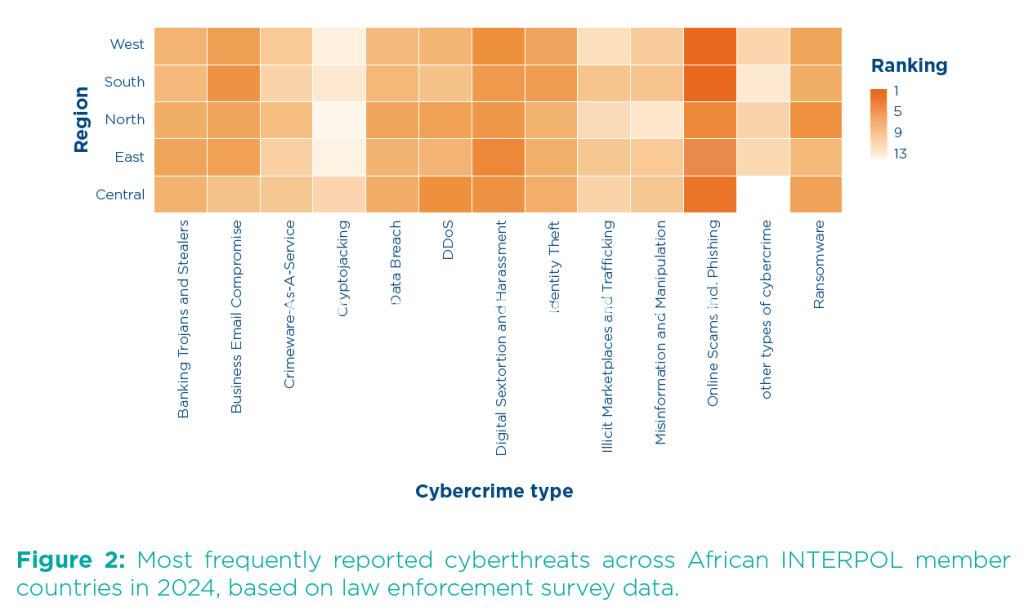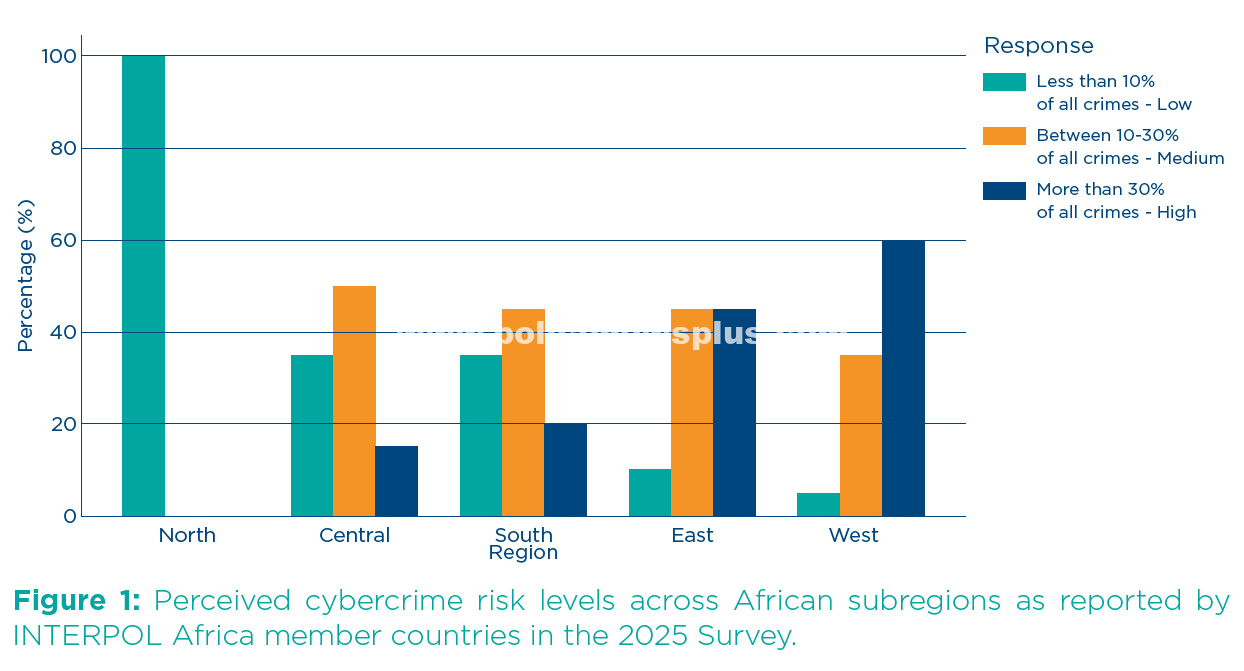Lyon, France | June 2025: Cybercrime is rapidly emerging as one of the most pressing threats across the African continent, according to the latest Africa Cyber threat Assessment Report released by INTERPOL. The 2025 edition highlights a significant increase in cyber-related crimes, with two-thirds of African member countries reporting that such offenses now account for a medium-to-high share of all criminal activity—reaching up to 30% in Western and Eastern Africa.

Phishing scams continue to top the list of reported cybercrimes, followed by ransomware attacks, business email compromise (BEC), and digital sextortion, some of which are increasingly being perpetrated through AI-generated content.
“This report paints a clear picture of a threat landscape in flux,” said Neal Jetton, INTERPOL’s Director of Cyber crime. “Emerging dangers like AI-driven fraud demand urgent and coordinated responses.”
Key Threats and Trends:
Suspected online scam notifications surged by up to 3,000% in some African nations, according to Kaspersky.
Ransomware detections rose sharply in 2024, with South Africa (17,849 cases) and Egypt (12,281) hardest hit, followed by Nigeria and Kenya.
BEC-related fraud has fueled large-scale criminal syndicates such as Black Axe, particularly in West Africa.
Digital sextortion is on the rise, with 60% of African countries reporting increased cases involving both real and AI-generated explicit images.
Attacks on Infrastructure:
Critical infrastructure has not been spared. Notable incidents include breaches at Kenya’s Urban Roads Authority (KURA) and Nigeria’s National Bureau of Statistics (NBS).
Challenges in Law Enforcement:
Despite the growing threat, many African nations are struggling to respond effectively:
75% of surveyed countries say their legal and prosecutorial frameworks need strengthening.
95% cite inadequate training, tools, and resources.
Only 30% have incident reporting systems, 29% maintain a digital evidence repository, and 19% possess a cyber-threat intelligence database.
86% report weak international cooperation capabilities.
89% need better public-private collaboration due to lack of structured engagement channels.
“Cyber security has become a pillar of peace, economic stability, and digital sovereignty in Africa,” said Ambassador Jalel Chelba, Acting Executive Director of AFRIPOL.
Steps Toward Resilience:
The report also documents notable progress:
Several countries have updated cyber laws in line with international standards.
Investments in specialized cyber units and digital forensics infrastructure are growing.
Joint operations such as Operation Serengeti and Operation Red Card resulted in 1,000+ arrests and the dismantling of massive malicious networks.
To address the cybercrime surge, INTERPOL proposes six strategic recommendations:
Strengthening regional and global cooperation
Expanding public awareness and prevention campaigns
Enhancing national legal frameworks
Investing in digital infrastructure
Deepening public-private partnerships
Leveraging emerging technologies for enforcement
The report forms a key component of INTERPOL’s AFJOC (African Joint Operation against Cybercrime) initiative, supported by the UK Foreign, Commonwealth and Development Office. It reflects input from both African law enforcement and private sector partners including Bi.Zone, Group-IB, Kaspersky, and Trend Micro.
This year’s findings serve as both a warning and a road map—underscoring the urgent need for African nations to scale up their cyber capabilities to keep pace with the evolving digital threat landscape.










